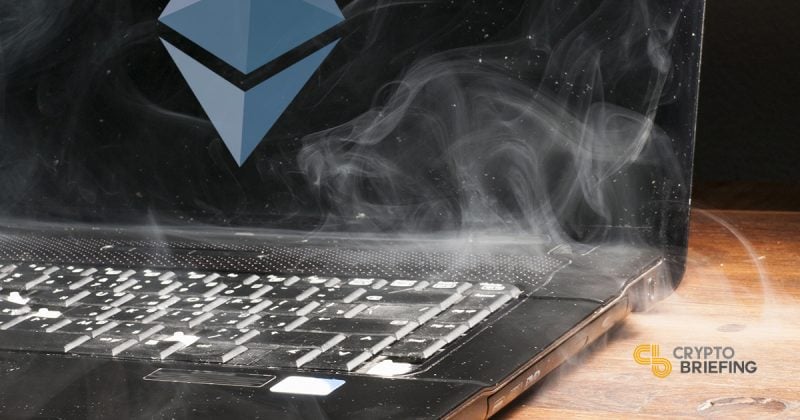
Highest Ethereum Transaction Fee Ever? Someone Accidentally Paid a $2.5 Million Fee
This could be the costliest mistake to date committed on the Ethereum blockchain.
Someone seems to have mistakenly paid $2.5 million in Ethereum transaction fees to send just $133 in ETH. Though, the real reason could be more nefarious.
A $2.5 Million Ethereum Transaction Fee
Earlier today, just before 10:00 UTC, a transaction was sent on the Ethereum network that cost the sender over $2.5 million. Instead of opting for a fee that could be as low as $0.5, the sender paid 10,668.73 ETH, worth $2.59 million, to send 0.55 ETH, worth $133.85 at press time.
The fee went to Spark Pool, a Chinese mining pool that processed the transaction. The pool paused payouts to its miners and is waiting for the sender to contact them.
The transaction was included in block 10,237,208 by Spark Pool, an Ethereum mining pool based in China. Spark Pool has since blocked the payout to its miners, telling its followers on Twitter that they are currently investigating the unusually high fee and are trying to identify the owner.
We are further investigating the incident of unusually high tx fee, and you are welcome to provide clues to [email protected]. SparkPool has had the experience of handling similar issues properly. There will be a solution in the end. https://t.co/mZc49Q0Y4r
— SparkPool (@sparkpool_eth) June 10, 2020
Money Laundering or Honest Mistake?
Spark Pool called on the community to provide tips on the mysterious transaction. Though, this wasn’t the first time that Spark Pool has had to deal with a transaction with such an unusually high fee. Historically, Spark Pool has managed to find and split the fee with the original sender each time.
Last year, Spark Pool froze the payout of 2,100 ETH they received for mining a block, worth over $300,000 at the time. It managed to identify a blockchain company based in South Korea as the sender of the transaction, deciding to split the reward with them.
While rare, these kinds of transactions aren’t a new thing in the crypto sphere. According to Cornell professor and founder of AVA Labs Emin Gün Sirer, these “goose egg” transactions do happen occasionally.
There are two possible explanations for these mistakes, he said, with the first being an honest mistake—someone accidentally swapping the amount they wanted to send with the fee they specified. A second explanation could be that miners are laundering money by whitewashing “dirty” coins through transaction fees, turning them into clean tokens.
It’s still unclear whether this was a case of money laundering or a simple mistake.
